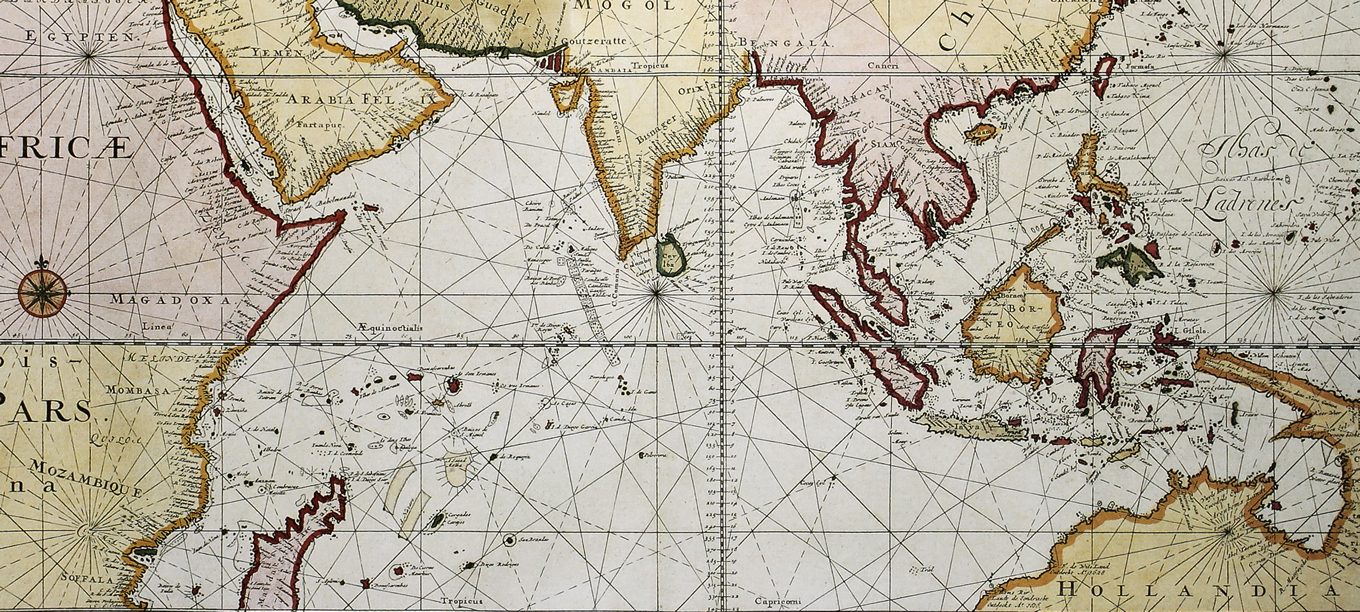
"Life can only be understood backwards; but it must be lived forwards."
- Søren Kierkegaard

- Søren Kierkegaard
Panth, matam, dharm, rah, and ṣirāṭ, meaning ‘The Way’, are some of the terms used by faith communities in South Asia to define their tradition’s path. This conference will explore how these ways were expressed in ritual, belief, and praxis to create distinction. For example, among the 19th century Khōjā of Sindh and Gujarat, the term satpanth ‘The True Way’, referred to numerous vernacular religious practices that incorporated Vaiṣṇav, Svāminārāyaṇ, Jain, Shia, and Sunni practices within a caste faith. Their liturgical materials originally were written in a caste script in a mélange of dialects from Sindhi, Gujarati, Kacchi, Rajasthani, and Urdu. This liminality was not exclusive to the north, in Tamil Nadu and Sri Lanka araputamiḻ, the Muslim dialect of Tamil in the Arabic script, records the cosmologies and worldview of Muslim merchant communities that intersperses Vaishnava imagery with Arabic vocabulary.
This conference is intended to bring together scholars of the Adivasi, Christianity, Hinduism, Islam, Jainism, Sikhism, and Zoroastrianism to explore how aesthetics, authority, narratives, rituals, and script have been historically shared and divided by faith communities in South Asia. How do we make sense of such heterogeneity that was distant from ‘orthodox’ literature being produced in urbane Sanskrit and Persian? How did rural religion differ and connect to larger faith communities across linguistic and script divides? Where were ethno-religious boundaries drawn between pragmatic mobile merchant communities and how fluid were they until early colonization? South Asian vernacular religion in local languages is a large untapped historical archive from which scholars can produce incisive microhistories. This is an open call for scholars across disciplines who wish to engage with the themes of endangered/extinct languages and scripts, merchant religion, modern religious identity formation, and the transmission of sacred narratives across the Persianate, Turkic, and Indic worlds. Suggested topics include, but are not limited to, The nuances of panth traditions, Satpanth tradition, pre-colonial rural religions, ethno-religious boundaries of Indian religions and liturgical literature of panth traditions.
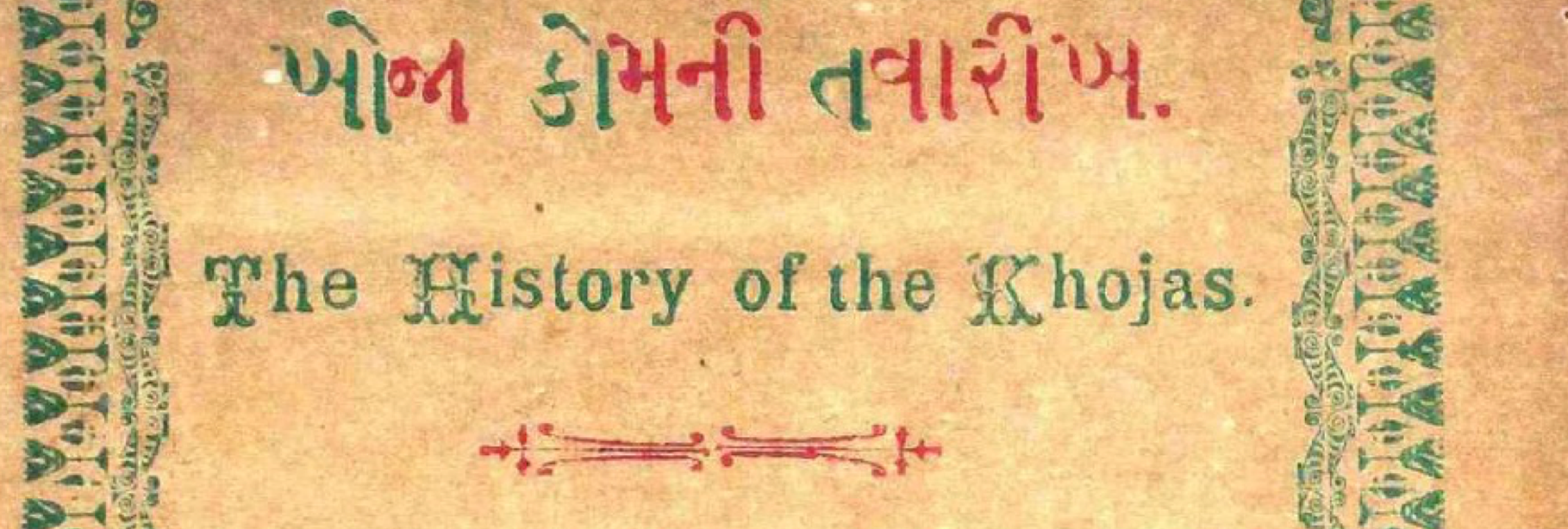
A two-day conference with a public keynote bringing together interdisciplinary Anglophone and Francophone scholars in the humanities, generally defined, to present and discuss the development of Khōjā identity over the past centuries among transnational communities in South Asia, East Africa, Western Europe, and North America. The output of the conference will be two edited volumes.
Date: 30-31 January 2019
Venue:
J. P. Naik Conference Hall, Kalina campus, Vidya Nagari, Kalina, Santacruz East, Mumbai 98
|
KHŌJĀ STUDIES CONFERENCE (II) |
|
|
Wednesday, 30 January 2019 |
|
| 09:15-09:30 | Registration |
| 09:30-10:00 | Keynote address by Edward Simpson, SOAS |
| 10:00-11:20 |
Defining Satpanth CHAIR: MICHEL BOIVIN, LE CENTRE D'ÉTUDES DE L'INDE ET DE L'ASIE DU SUD Karim H. Karim, The quest for truth in Satpanth Ali S. Samji, The conversion of ascetics in Bengāl and Bhoṭ Zahida Rahemtulla,Shifting sources,inventing identities |
| 11:20-11:35 | Coffee break |
| 11:35-12:30 | Digital preservation and online communities CHAIR: HASNAIN WALJI, THE WORLD FEDERATION OF KSIMC Pyarali Jiwa Ginans, granths and related literature Iqbal Dewji, Crowdsourcing and wiki approaches to historical preservation |
| 12:30-14:00 | Lunch |
| 14:00-15:30 | Sacred literature of the Ginans CHAIR: BALVANT JANI, DR. HARISHINH GAUR CENTRAL UNIVERSITY Karim Gillani, Satpanth Khoja ginans from South Asia Nisha Keshwani Approaches to teaching ginans and Satpanth histories Parin Somani, What is the difference between Ismaili ginans and Hindu bhajans? Alijan Damani, Ginans |
| 15:30-15:45 | Coffee break |
| 15:45-17:30 | Oceanic encounters CHAIR: EDWARD SIMPSON, SCHOOL OF ORIENTAL AND AFRICAN STUDIES Chayya Goswami, Mercantile communities of the Gulf of Kachchh Abdul Hussainmiya, Arabu-Tamil and Malay manuscript traditions in Sri Lanka Afsar Mohammad, Vernacular aesthetics of Sufi poetry Philipp Bruckmayr, Vernacular Islam and Indic scripts in Southeast Asia |
| 17:30-18:00 | Bombay Khōjā Artefacts Exhibition- Sadiq Uttanwala & Nasreen Fazalbhoy |
| 18:00-20:00 | Dinner |
|
Thursday, 31 January 2019 |
|
| 09:15-10:45 | Vernacular Hinduism CHAIR: KUMAIL RAJANI, UNIVERSITY OF EXETER & THE WORLD FEDERATION OF KSIMC Minakshi Rajdev, Mirasi and an existence from anonymous to pseudonymous Premeela Gurumurthy, Ramanuja the reformer and his essence of Vaishnavism Urvashi Pandya, Varkari Sampradya: Freedom of devotion Trisha Lalchandani, The Persistence of Liminality: The Case of the Hindu Sindhis |
| 10:45-11:00 | Coffee break |
| 11:00-12:30 | The Khōjā Diaspora
CHAIR: KUMAIL RAJANI, UNIVERSITY OF EXETER & THE WORLD FEDERATION OF KSIMC Sibtain Panjwani, The British experience Hasnain Walji, Francophone Indian Ocean communities Liyakat Takim, The American experience Paul Anderson, The Negotiation and Revising of Ismāʻīlī Khōjā Identity, Past and Present |
| 12:30-14:00 | Lunch |
| 14:00-15:15 | Interreligious exchange CHAIR: AFSAR MOHAMMAD, UNIVERSITY OF PENNSYLVANIA Armeen Kaur Ahuja & Charulika Dhawan, Diachronic analysis of Guru Granth Saheb Venu Mehta, ‘Gujaratization’ of Parsi Literatures Michel Boivin, Devotion, community and society: introducing Daryalal, the Kutchi god |
| 15:15-15:30 | Coffee break |
| 15:30-17:00 | Interfaith connections CHAIR: IQBAL AKHTAR, FLORIDA INTERNATIONAL UNIVERSITY Amit Ranjan, Sarmad and Sufism in 17th century India Yudit Kornberg Greenberg, Gita Govinda and the Biblical Song of Songs Pavel Basharin, Manuscripts of Sayyids of Zong Jonathan Varghese, Syriac Christianity and Indigenous Kerala |
| 17:00-17:15 | Coffee break |
| 17:15-18:15 | Khōjā film screening and discussion with the producer |
| 18:15-18:30 | Concluding remarks and future planning |
| 18:30-20:30 | Dinner |
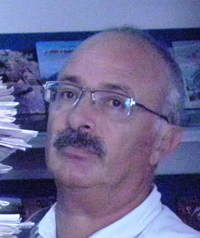
Michel Boivin is Senior Research Fellow at the Centre for South Asian Studies and he teaches Historical Anthropology of Muslim Societies in Colonial and Postcolonial South Asia at the School of Advanced Studies in Social Sciences (EHESS, Paris). He also supervises a number of master and PhD students, at EHESS as well as at the University of Karachi where he is external examiner for PhD. In 2011, he has founded the Centre for Social Sciences in Karachi (CSSK), a French NGO whose aim is to foster the studies in Social Sciences related to Pakistan and South Asia.
Michel Boivin works on the construction on modern knowledge in the context of colonial and postcolonial South Asia, through the emergene of new social classes. Focussing on the Sindhicate area, he scrutinizes how the vernacular was constructed both in Muslim and Hindu societies before and after partition, in Pakistan as well as in India. He has authored about one hundred academic papers, and he has edited and published twelve books. The last one published in French is title Pakistan: Anthropology of an Islamic Republic (Téraèdre, Paris, 2015). In English, he has recently published Historical Dictionary of the Sufi Culture of Sindh in Pakistan and in India (Karachi, OUP, 2015).
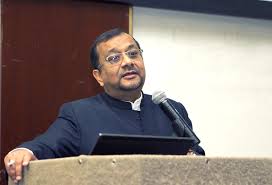
Dr. Hasnain Walji is a Co-Chair of the Khoja Heritage Project of The World Federation of KSIMC. He is an educator, historian, author, and an interfaith activist.
As a dedicated oral historian, for the past 30 years he has been researching and documenting the socio-religious history and evolution of the Khoja Shia IthnaAsheri Community. This has culminated in the production of a a groundbreaking anthropological documentary "The Khojas - A Journey of Faith" that spans the past 600 years of the Community's history. Hasnain has also served as Secretary General, Vice-President and as President of The World Federation of KSIMC and is the founding director of the Mulla Asghar Memorial Library and Resource Center in Toronto which houses a rare collection of over 100 manuscripts on the history of the Khojas in Gujarati and Khojki. He has authored 26 books on naturopathic medicine that have been translated from English to Chinese and other European languages. He has travelled the world in pursuit of his passion for increasing interfaith understanding in a quest to make this world a better place for his six grandchildren.
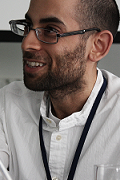
He teaches both undergraduate and graduate courses as well as independent studies which include but are not limited to: Islamic Political Thought, Advanced Interpretations of the Quran, Voice of the Prophet, Islamic Faith and Society, Women in Islam, and Islamic Mysticism (Sufism). He is the research director of the Western Indian Ocean Studies programme.
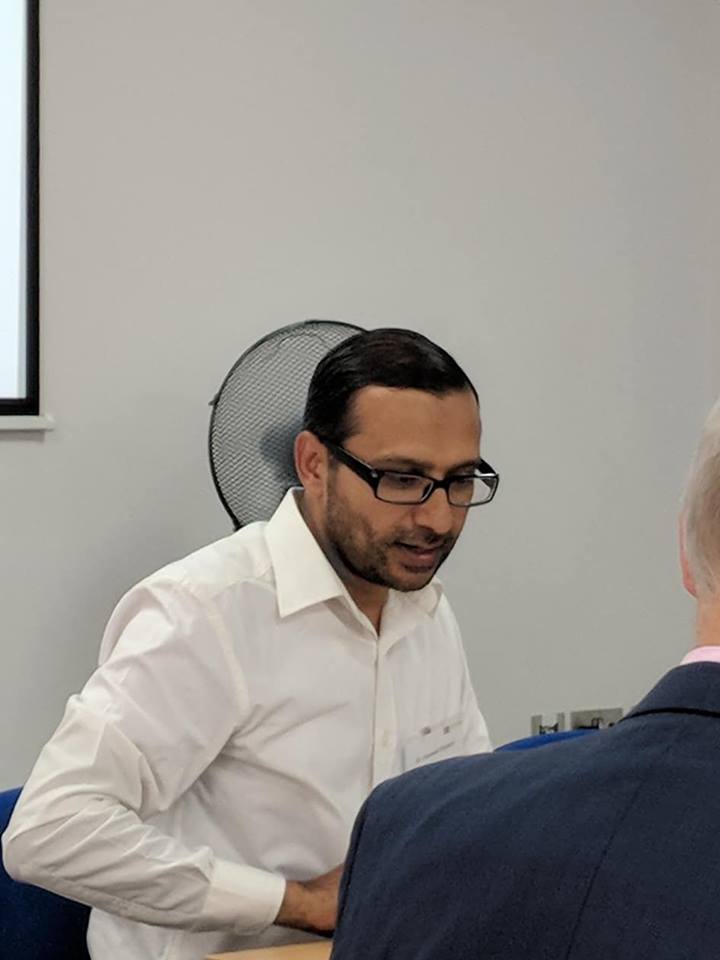
Kumail Rajani is a Postdoctoral Research Fellow in Islamic Studies at the Institute of Arab and Islamic Studies, University of Exeter. He works on the Law, Authority and Learning in Shiite Islam project, an advanced award (no. 695245) funded by European Research Council. Though primarily focused on the origins and development of hadith corpora, his research includes Islamic law, legal theory, and Shiʿi studies more broadly. He recently published an article entitled “Between Qum and Qayrawān: Unearthing early Shii ḥadīth sources” (BSOAS 84/3, 2021). He also edited The Sound Traditions: Studies in Ismaili Texts and Thought (Brill, 2021) and co-edited Shiʿite Legal Theory: Sources and Commentaries (forthcoming, 2022). He is currently working on converting his PhD (Making Sense of Ismaili Traditions: The Modes and Meanings of the Transmission of Ḥadīth in the Works of al-Qāḍī al-Nuʿmān (d. 363/974), Exeter) into a monograph, among other pursuits. Rajani spent a number of years in Shiʿite seminary (Ḥawza) of Qum studying and teaching classical Islamic texts of ḥadīth, fiqh and Islamic legal theory. Rajani is the recipient of Post Doctoral Writing Fellowship from British Institute for Libyan and Northern African Studies for one year (2022) as well as British Academy Postdoctoral Fellowship for 3 years (2023-2025).

Kumail Rajani is a Postdoctoral Research Fellow in Islamic Studies at the Institute of Arab and Islamic Studies, University of Exeter. He works on the Law, Authority and Learning in Shiite Islam project, an advanced award (no. 695245) funded by European Research Council. Though primarily focused on the origins and development of hadith corpora, his research includes Islamic law, legal theory, and Shiʿi studies more broadly. He recently published an article entitled “Between Qum and Qayrawān: Unearthing early Shii ḥadīth sources” (BSOAS 84/3, 2021). He also edited The Sound Traditions: Studies in Ismaili Texts and Thought (Brill, 2021) and co-edited Shiʿite Legal Theory: Sources and Commentaries (forthcoming, 2022). He is currently working on converting his PhD (Making Sense of Ismaili Traditions: The Modes and Meanings of the Transmission of Ḥadīth in the Works of al-Qāḍī al-Nuʿmān (d. 363/974), Exeter) into a monograph, among other pursuits. Rajani spent a number of years in Shiʿite seminary (Ḥawza) of Qum studying and teaching classical Islamic texts of ḥadīth, fiqh and Islamic legal theory. Rajani is the recipient of Post Doctoral Writing Fellowship from British Institute for Libyan and Northern African Studies for one year (2022) as well as British Academy Postdoctoral Fellowship for 3 years (2023-2025).
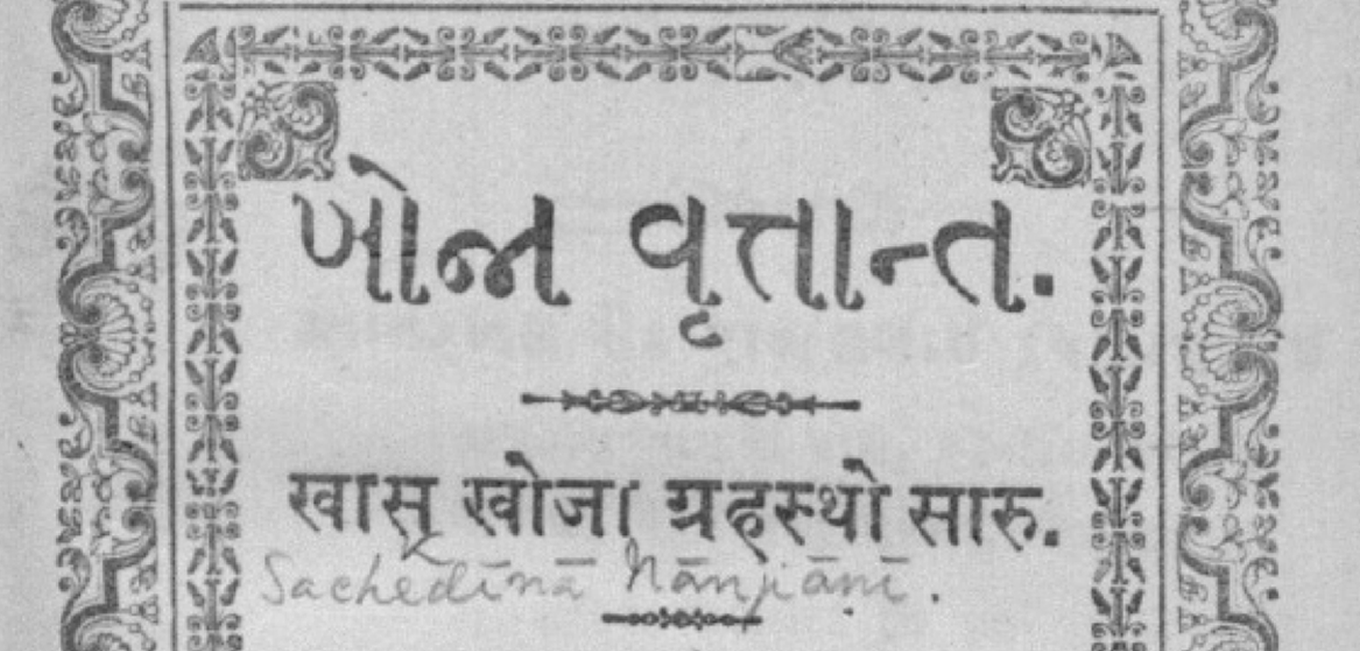

The World Federation was established in 1976. Its aim was to unify the disparate communities of the Khoja Shia Ithna Asheri community throughout the world under its umbrella. The World Federation recognised the needs and growth of the newly-settled Khoja Shia communities in the West, namely in the UK, Europe, USA, Canada, Dubai, and Australasia. The World Federation attends to the community’s financial, spiritual, and educational needs, and passionately follows its motto: ‘We exist to serve’. It is a registered charity in the UK, and is world renowned for its efficient and well-organised humanitarian and religious contribution to people throughout the world.
The World Federation of KSIMC works in the areas of International Relief & Development, Islamic Education, and Community Affairs, the last of which includes the Khoja Heritage Project.

The Department of Politics and International Relations at Florida International University combines traditional disciplinary strengths in political science with a multi-disciplinary approach to the study of international relations. The Department offers Bachelor of Arts degrees in political science and international relations, the Masters of Arts degree in international studies, and the Doctor of Philosophy in political science and international relations. Students can also pursue several combined degrees at the undergraduate or graduate level.
Faculty and graduate students conduct research that spans a number of geographic regions including North America, Latin America, Europe, the Middle East, Sub-Saharan Africa, Central Asia, and East Asia. Thematically, the Department offers courses in the five traditional political science subfields of American politics, comparative politics, international politics, and political theory. Faculty and students also carry out research that transcends traditional boundaries.

The EHESS is made up of over 47 research centres, 37 of which are shared with the Centre national de la recherche scientifique. It nevertheless does not constitute a research institute in the conventional sense of the word. Life at the school is centered on research training in which students work alongside experienced researchers, a perspective from which they gain privileged access to the mechanics of research in progress. The school can boast of an unparalleled range of research seminars, programs and publications, all of which embrace an interdisciplinary and multidimensional approach. It accordingly places a particular emphasis on area studies and it is a key aspect of school policy to actively promote conversation between the social sciences and other sciences, in particular the life sciences, as well as the arts.
Life at the EHESS is driven by its 300 plus tutor-researchers and 500 pure researchers based in its multiple research centres, in collaboration with over 450 technical support staff and 3000 enrolled students, and is supported by a consolidated budget of 40 million euro. The school also places great emphasis on its international agenda, maintaining links with a vast constellation of universities around the globe. It invites each year 150 foreign teachers to enrich its research activities and approximately one half of its students come from outside of France. The resources it offers to those pursuing doctoral and post-doctoral studies, as well as the number of publishing researchers based at the school, mark it out as a key hub for research in the social sciences in Europe.

The University of Mumbai or informally Mumbai University (MU), Maharashtra State, is one of the first three state universities and the first to accept women in India. It is one of the largest Universities in the world enrolling over half a million students and affiliated to over 711 colleges. Several world-renowned institutes in Mumbai, previously affiliated to the university, are now autonomous institutes.
The University of Mumbai offers highly sought-after Bachelors, Masters and Doctoral degrees as well as diplomas and certificates in many disciplines in English, with the top 10 UOM colleges having an acceptance rate of 10% or less. University Administration Building. The Elphinstone College in the late 19th century University Hall and Rajabai Tower circa 1905 University of Mumbai was established in 1857 following a petition by Sir Charles Wood from the Bombay Association to the former British government of India. It was modelled on the University of London with two founding Faculties namely the Faculty of Arts at Elphinstone College in 1835 and the Faculty of Medicine at Grant Medical College in 1845. Initially, the Town Hall building was used for the Mumbai University offices, which only conducted exams and dictated curricula to affiliated colleges.
After 1904, teaching departments, research disciplines and post-graduate courses were added, and several University departments were established, starting with the School of Sociology and Civics and Politics. After India achieved independence in 1947, the functions and powers of the University were reorganized under The Bombay University Act of 1953.
At Present there are total 66 Departments located at Vidynagari Campus, 760 affiliated colleges of all over Maharashtra state and UOM conducting approx. 475 various degree Examinations.
University of Mumbai has three sub centers named Thane Sub centre, Ratnagiri Sub centre and Kalyan sub centre.
